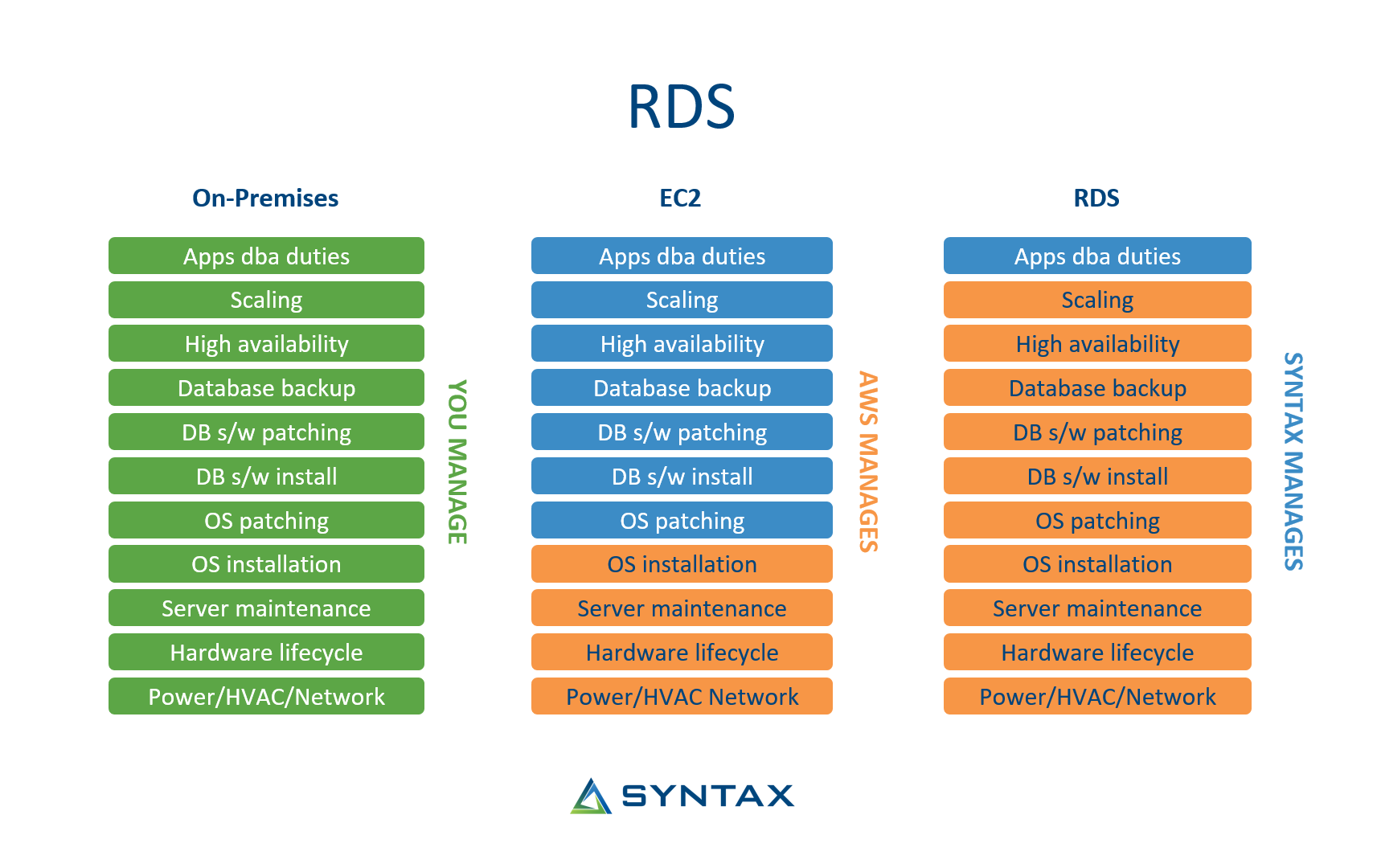If you’re using or considering SQL Server on the Amazon Cloud (AWS), you can bring your own SQL licenses for use on a default Elastic Compute Cloud (EC2) tenant, provided that you have purchased software assurance. You cannot bring your own SQL licenses for use on Amazon Relational Database Service (RDS). So depending on your licensing requirements, you can choose RDS or EC2. The good news is that Syntax Managed Services can support you either way.
How is RDS different from EC2?
If you want to maximize your existing SQL licenses with software assurance, then you’ll need to migrate to EC2. (If you do not have your own SQL licenses, they can be subscribed to as an option). EC2 also allows for more instance types than RDS, including reserved instances. While EC2 requires more up-front design work if you want high availability or need availability groups, it gives you much more flexibility. Syntax offers full support, from the operating system up, and full availability for EC2 environments.
Amazon Relational Database Service (RDS) for SQL Server is licensed through AWS, so you’re paying for OS and SQL licensing on each instance. RDS is purpose-built for Microsoft SQL workloads – easy to set up and operate, with high-availability (multi-AZ option) and scalability right out of the box. The trade-off is less flexibility, no shell access, and limited access to system procedures and tables, while having to rely on Amazon to address limitations through future feature updates. With an RDS environment, Syntax is focused more on the database application, so we’re going up higher in the stack to support you, our managed services customer.

So Why Choose RDS over EC2?
With RDS there is less to administer, allowing Syntax to focus on higher level tasks. AWS is responsible for patches, backups and maintenance. With RDS, AWS has created an environment for the SQL workload that has all the availability built in, while AWS manages the infrastructure. So you’re getting the benefit of AWS’s deep expertise on top of it all.
What’s a good fit for RDS?
To recap, if ease of use and high availability trump flexibility, and you’re ready to license through AWS, then consider RDS: Purpose-built. High Availability. Auto-Scaling. And AWS manages the entire stack up to the data itself.
Further, if you don’t have software assurance which provides license mobility with your current Microsoft SQL licenses, then you won’t be able to use it in the AWS cloud. Period. So RDS becomes a good option for you.
As your managed services partner, Syntax fully supports both EC2 and RDS environments for Microsoft SQL. The choice is yours.

